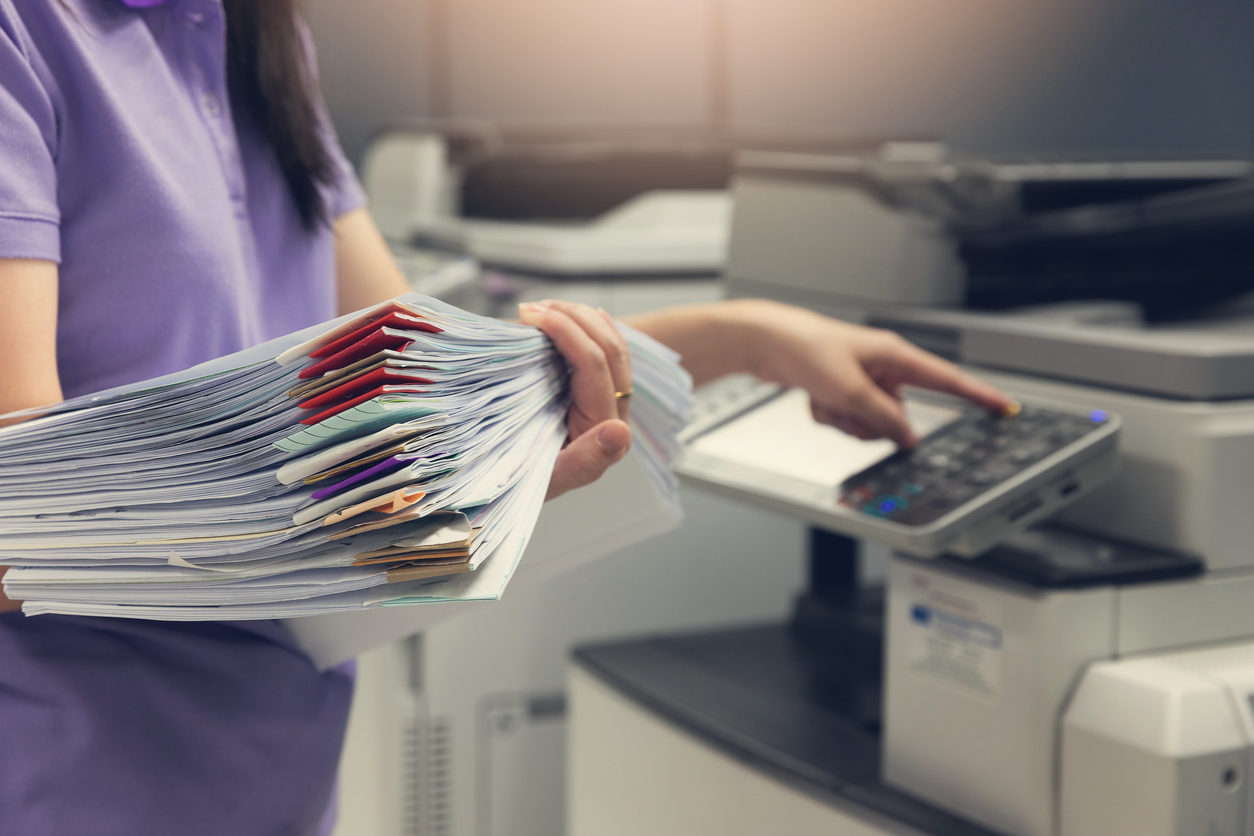America's coronavirus response is still relying on fax machines


A free daily email with the biggest news stories of the day – and the best features from TheWeek.com
You are now subscribed
Your newsletter sign-up was successful
America's outdated systems of storing and transferring health data have never been more obvious — or dangerous.
The U.S. finally has made great strides in increasing the testing capacity it needs to track how COVID-19 is spreading across the country and move toward stopping its stampede. There's just one big problem: That data is often sent via fax machines and phone calls, and is often sent to the wrong places, meaning "the data is moving slower than the disease," the executive director of Houston's Harris County health department Dr. Umair Shah tells The New York Times.
The fax machine is almost as formidable an enemy as COVID-19 at the Harris County Public Health office. The department collects results of coronavirus tests in the area and uses them to contact trace and potentially quarantine people, preferably through a simple data transfer on the computer. But others come via "phone, email, physical mail, or fax," as it's expensive to upgrade data storage systems while still preserving health privacy standards.
The Week
Escape your echo chamber. Get the facts behind the news, plus analysis from multiple perspectives.

Sign up for The Week's Free Newsletters
From our morning news briefing to a weekly Good News Newsletter, get the best of The Week delivered directly to your inbox.
From our morning news briefing to a weekly Good News Newsletter, get the best of The Week delivered directly to your inbox.
That in turn forces workers to physically input a variety of data into the department's database, increasing the chances of mistakes and slowing the COVID-19 tracking process down dramatically. And when a doctor's office sends a mass of results at once, "picture the image of hundreds of faxes coming through, and the machine just shooting out paper," Shah described.
Houston isn't alone in its data dilemma — Washington state even brought in the National Guard to deal with its piles of paper test results earlier in the pandemic. Read more at The New York Times.
A free daily email with the biggest news stories of the day – and the best features from TheWeek.com
Kathryn is a graduate of Syracuse University, with degrees in magazine journalism and information technology, along with hours to earn another degree after working at SU's independent paper The Daily Orange. She's currently recovering from a horse addiction while living in New York City, and likes to share her extremely dry sense of humor on Twitter.
-
 Why is the Trump administration talking about ‘Western civilization’?
Why is the Trump administration talking about ‘Western civilization’?Talking Points Rubio says Europe, US bonded by religion and ancestry
-
 Quentin Deranque: a student’s death energizes the French far right
Quentin Deranque: a student’s death energizes the French far rightIN THE SPOTLIGHT Reactions to the violent killing of an ultraconservative activist offer a glimpse at the culture wars roiling France ahead of next year’s elections.
-
 Secured vs. unsecured loans: how do they differ and which is better?
Secured vs. unsecured loans: how do they differ and which is better?the explainer They are distinguished by the level of risk and the inclusion of collateral
-
 Nobody seems surprised Wagner's Prigozhin died under suspicious circumstances
Nobody seems surprised Wagner's Prigozhin died under suspicious circumstancesSpeed Read
-
 Western mountain climbers allegedly left Pakistani porter to die on K2
Western mountain climbers allegedly left Pakistani porter to die on K2Speed Read
-
 'Circular saw blades' divide controversial Rio Grande buoys installed by Texas governor
'Circular saw blades' divide controversial Rio Grande buoys installed by Texas governorSpeed Read
-
 Los Angeles city workers stage 1-day walkout over labor conditions
Los Angeles city workers stage 1-day walkout over labor conditionsSpeed Read
-
 Mega Millions jackpot climbs to an estimated $1.55 billion
Mega Millions jackpot climbs to an estimated $1.55 billionSpeed Read
-
 Bangladesh dealing with worst dengue fever outbreak on record
Bangladesh dealing with worst dengue fever outbreak on recordSpeed Read
-
 Glacial outburst flooding in Juneau destroys homes
Glacial outburst flooding in Juneau destroys homesSpeed Read
-
 Scotland seeking 'monster hunters' to search for fabled Loch Ness creature
Scotland seeking 'monster hunters' to search for fabled Loch Ness creatureSpeed Read
